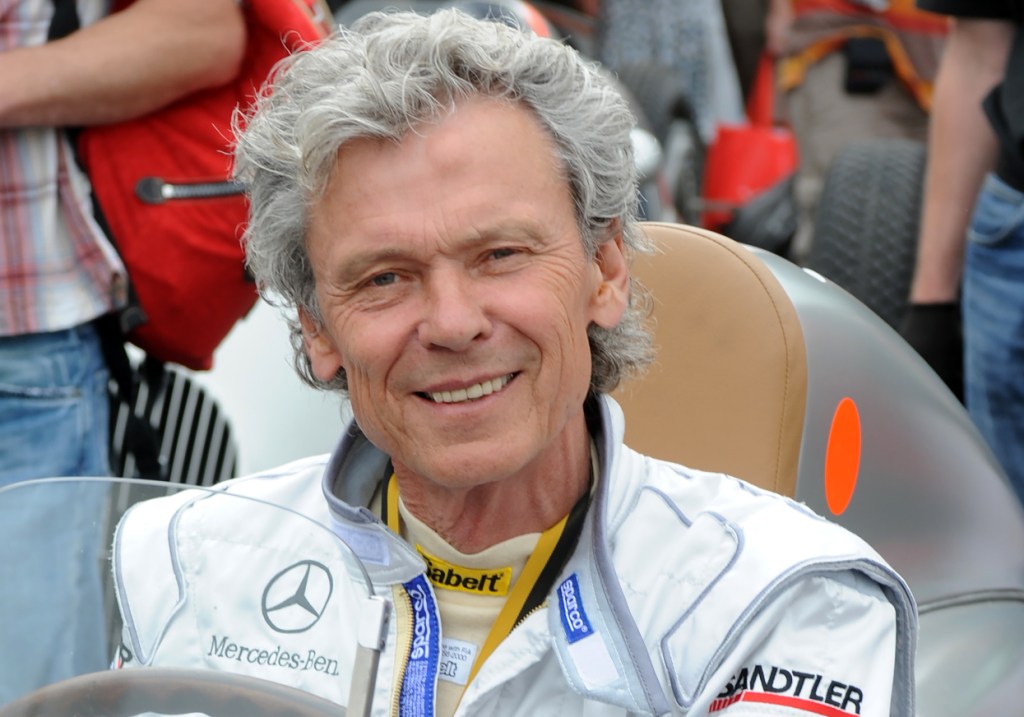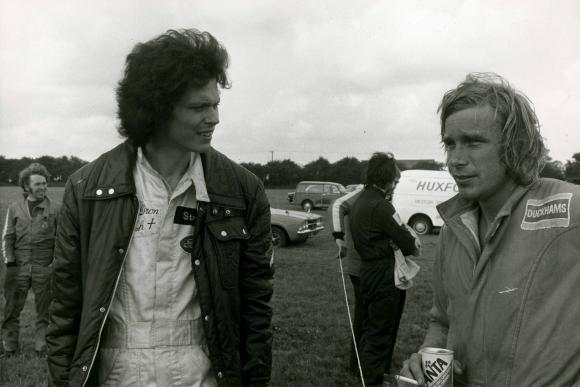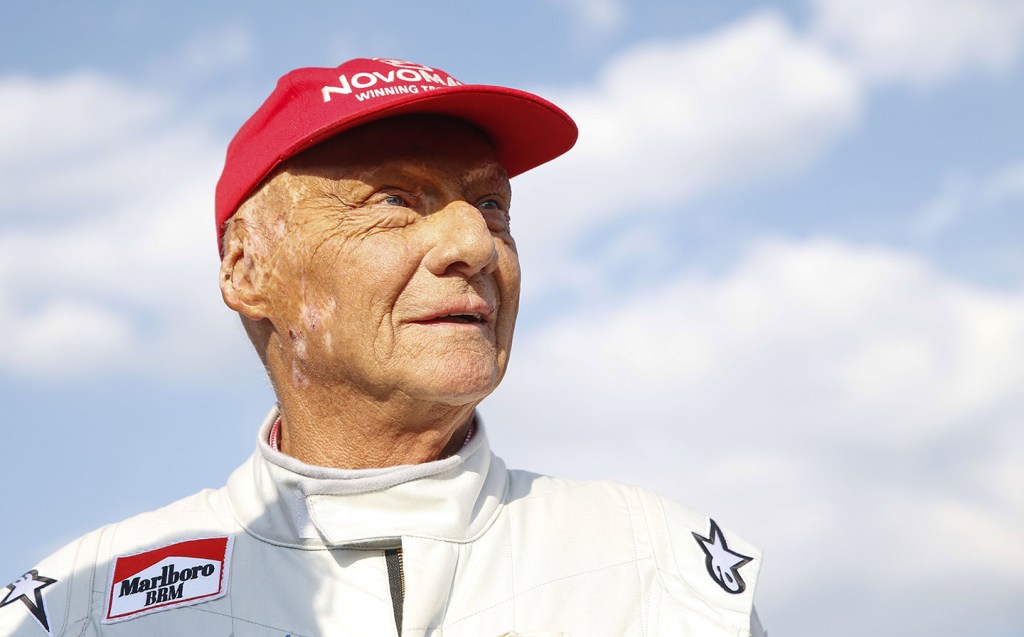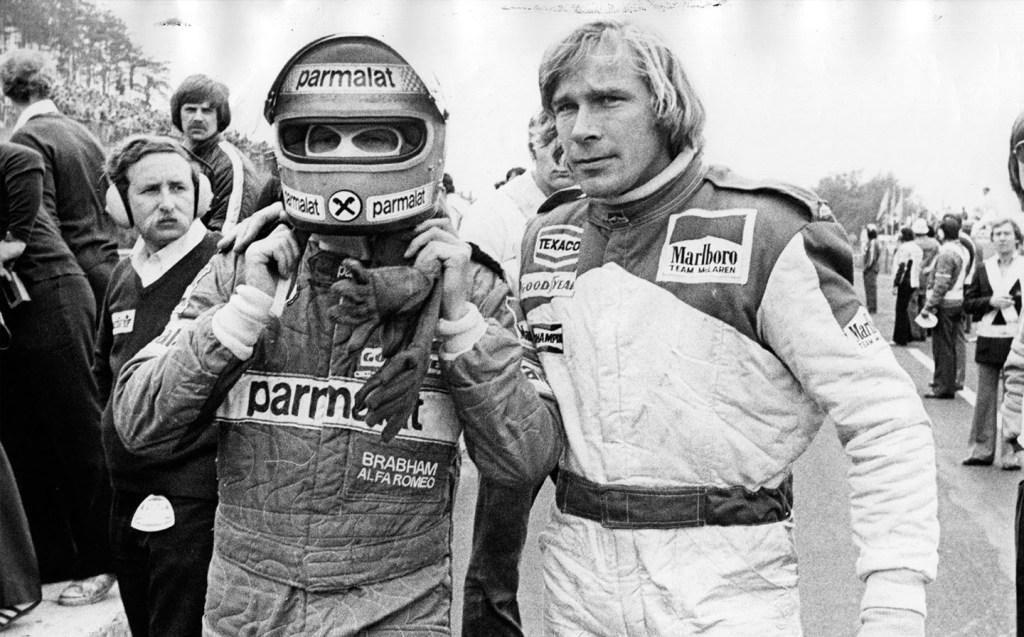This month, fans of the 2013 movie Rush — which dramatises James Hunt and Niki Lauda’s routes into Formula One and their legendary rivalry throughout the 1976 F1 championship — celebrate the film’s 10th anniversary.
The Ron Howard-directed blockbuster stars Daniel Brühl (Captain America: Civil War; Inglourious Basterds) as Austrian ace Lauda and Chris Hemsworth (Thor; In the Heart of the Sea) as Hunt. The star power helped it achieve box office success, bringing in more than £77m worldwide over its 15 week run on the back of a £31m production budget.
But it was a critical success, too, with Rotten Tomatoes giving it an 88% score based on 238 reviews, with the published consensus: “A sleek, slick, well-oiled machine, Rush is a finely crafted sports drama with exhilarating race sequences and strong performances from Chris Hemsworth and Daniel Brühl.”
At the time of the film’s release, The Sunday Times Driving invited Lauda himself and Tony Dron, a close friend of Hunt’s who raced against him in Formula Ford (and Driving.co.uk editor Will Dron’s father), to give their impressions of the film. Sadly we are unable to ask them to revisit it 10 years on, as both men have since passed away, but we reproduce their original comments below.
If you’d like to watch Rush, it’s available to stream via StudioCanal Presents on Prime Video (£4.99/month subscription) or iTunes, or you can rent or buy it on Prime Video.
This article was originally published on September 13, 2013
Tony Dron: Rush moved me to tears

Iwasn’t looking forward to seeing Rush. As determined young beginners in the wonderful but dangerous boiling pot that was Formula Ford motor racing in 1968, Hunt and I knew each other well. It was an intense time in our young lives, as we strained every part of our beings to succeed.
We became friends, we travelled to circuits together and we needed no invitation to be in and out of each other’s house. Often I would arrive home to find James there, being served a meal by my mother.
James has been dead for 20 years, but the James Hunt industry shows no sign of decline, and the absurd myth of the playboy racer seems only to grow. Documentaries about him have tended to be misleading. Would this story of Hunt versus Lauda in 1976 be more of the usual nonsense? I became increasingly subdued as the preview day approached.
Then the film began and I came to with a start. It looked right, it sounded right and it felt right — to my amazement I was back in an early 1970s Formula Three paddock. Tears began to stream down my face and continued to do so throughout most of the film. That was astonishing because I am not given to that sort of thing. I was not crying in the normal way, but some strange, strong emotional force had been released. Somehow, this work of art had captured the essence of what occurred in that dramatic period of motor racing. In that sense, it is honest in a way that shames many of the documentary makers.

The film swept me back to those days in 1976, which I remember well, in a most powerful way. It’s great entertainment, a story based closely on extraordinary events, and I would recommend it to anybody, even those with only the mildest interest in motor racing history.
The acting, if anything, is somewhat understated, and that is no bad thing because a modern audience might not believe that the real Louis Stanley, principal of the Formula One team BRM, was quite as pompous as he actually was. Likewise avoiding an improbable extreme, the young Lord Hesketh, who gave James his F1 break, is portrayed as a slightly toned-down version of the genuine article.
James’s vital move to the McLaren team is well covered in Rush. Hunt and Lauda, who really were good friends, are played beautifully too. James’s accent is to my ears not quite fruity enough, rather too 21st-century public school, but that matters not a bit.
Motor racing bores might nitpick over some minor error, a sticker that’s not in the right place, perhaps, but I noticed no such thing, and anyway the small details of that kind are irrelevant. Rush is not a documentary and it is all the better for that because, at last, here is a film that hits the essential truth of this great story.
Niki Lauda: So that’s why people were frightened to look at me

There have been many great Formula One rivalries, such as Alain Prost and Ayrton Senna, or Nigel Mansell and Nelson Piquet, but the one between James Hunt and me was very particular because of my accident. When I found out that the scriptwriter Peter Morgan and the director Ron Howard were involved, I thought that these were the right people to make a film about it.
The plot is absolutely accurate: it’s the story of the 1976 season, but the difficult thing was to make it attractive today, for young people who have no idea of what happened because it’s not even close to when they were born.
They have made a movie for today’s viewers by focusing on the individuals: one playboy racing driver and one more serious guy fighting for a championship. It’s a story about two characters and how they approach a very competitive Formula One season.
When I met Ron he was firing questions at me like a machinegun and you can see the results in the movie. The special effects are very good and it is so accurate that I found some scenes — the hospital ones — pretty hard to look at, having been in there.
I remember nothing of the accident at the Nürburgring, so my only view of it is from the film, but the rest I remember, and it’s in the movie because I told them about it.

I knew I was in bad shape in the hospital because the doctors said: “When we give him oxygen he will die.” The nurse asked me at one stage if I wanted the last rites, so I nodded because at the stage I was in I thought that it couldn’t be a bad thing. Then the priest was there and gave me the last rites and left. I was really annoyed because I was hoping that he would speak to me but he didn’t talk to me at all. Then I said to myself, “I’ve had enough. Now for sure I am not going to die.” It was a positive encouragement to me to fight harder and stay alive.
Until the film I had seen this only from my point of view; now I had the chance to see it from the other side. There is a scene in which Daniel Brühl, who plays me, turns round at Monza when Hunt approaches him for the first time since the accident and you see Daniel’s burnt face. Now I understand why people were actually frightened to look at me.
Daniel plays me really well. He’s German and speaks English in the film, but he went to Vienna and learnt Austrian German so his accent was more like mine. The likeness is unbelievable. Even my wife said he talks like me.
I’d change nothing about the movie, and my only complaint is that James is shown as the real playboy and I am the real serious racer. The truth is I was half of James and half the serious racing driver. I had a lot of fun as well, just not as much as he had — let me put it that way.
I just wish James were here to see the movie. He would have loved it.